Statistically, most people with roots in the British Isles will be descended from Royalty. The same probably goes for most Europeans. The problem is finding a paper trail back to the palaces and castles. This post looks at how you can increase the odds of finding your royal ancestry. It also looks at the errors many people make.
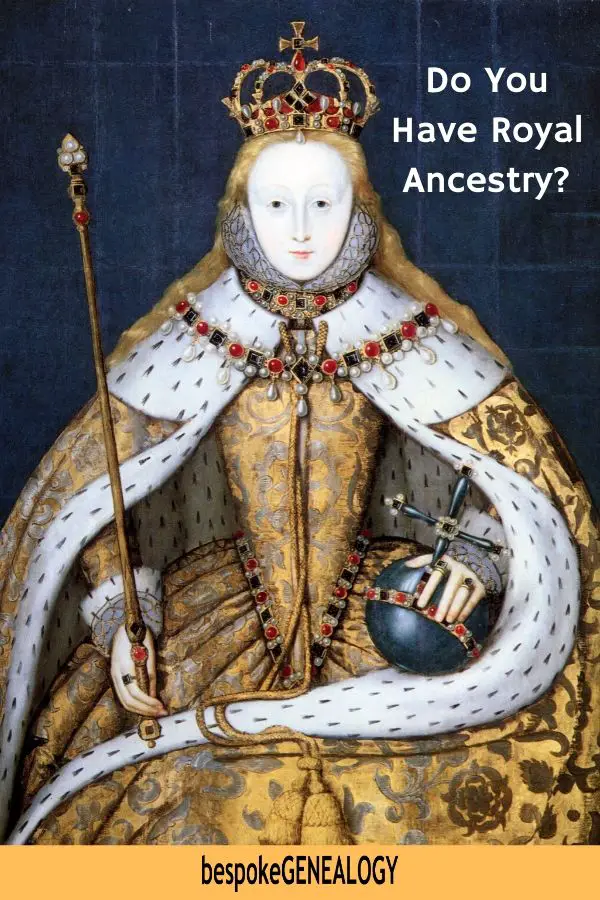
This article focuses on finding links to the aristocracy and royalty in Great Britain.
Gateway to your Royal Ancestry
The key to discovering whether you have royal ancestry is finding a so-called “gateway” ancestor. This is a person from an aristocratic family with a published pedigree. The aristocracy were often related to the royal family, so finding this ancestor is important.
Aristocratic titles and property usually passed to the eldest son. This meant that other children in the family were not as fortunate. Daughters were usually married off to other titled or wealthy families, but the younger sons often had to fend for themselves.
The younger sons of the aristocracy often had careers as officers in the Army or Navy or joined the Church. Others went to work in the legal profession or with the large merchant companies. So, look out for these professions when researching, as they could be valuable clues.
The wealth and education of each generation of the junior descendants of an aristocrat would often diminish over time. So eventually branches of the family would become as “ordinary” as the rest of us.
Research all direct lines
This is why it’s important not to limit your research just to a handful of lines; research them all, male and female. The further back you can get, the more lines you have to investigate. The more people that you research, the greater the chance of finding that gateway ancestor.
Go back as far as you can with each line. Since 1538 in England and Wales, parish churches have been required by law to keep registers of baptisms, marriages and burials. So, in theory, you should be able to go back that far with your lines. In reality this is often very difficult as many early parish registers have been lost, or were not kept diligently, especially during the Civil War (1642-1651).
However, it should be possible to research most lines back at least to the mid 1700s with parish registers. This should give you a fair number of direct lines to increase the chances of finding a gateway ancestor.
Resources
Civil registration began in 1837 in England and Wales (1855 in Scotland), so parish registers are the most important genealogy records before then. See A Guide to British Parish Registers for more on this key resource.
Newspaper announcements, especially for marriages, can be very valuable for finding wealthier individuals as they often list the parents and where they lived. After a bit of investigation, you may find the parents living in a substantial home. For more, see: Online British Newspapers.
A very useful (and often overlooked) free newspaper resource is the Gazette. Here you will find 350 years of announcements and other useful genealogical records. The Gazette also publishes an Army supplement which lists promotions and deployments, very useful for finding Officer ancestors. See: An Amazing Free British Genealogy Resource: The Gazette.
See also my previous posts on Navy and Military records.
Finding an ancestor who was a member of the Clergy is often a clue that they came from an aristocratic family. A great resource here is the Clergy of the Church of England Database. This site has biographies of many clergymen in the Church between 1540 and 1835.
Directories can be useful sources of information, especially if your ancestor is listed in the “prominent citizens” section. For more see: Use Historical Directories to find your Ancestors.
If you discover an ancestor from an aristocratic family, you can then look for a pedigree.
The most important resources for aristocratic pedigrees are probably the series of books published by Sir Bernard Burke in the late 1800s. Most of them can be accessed for free on the Internet Archive. Search for “Burke, Sir Bernard” and you will get a list of the publications. An example is “A Genealogical and Heraldic History of the Landed Gentry of Great Britain and Ireland, Volume One”
For more on historical free genealogy books on the internet see: Where to Find Free Genealogy Books.
Online Trees
A note about online trees: please be very wary of these as sources of information. I suspect that most people who believe that they are descended from royalty or the aristocracy have got their information from these trees. However, many, if not most, of these trees are inaccurate and contain serious errors and unsourced facts.
On Ancestry alone, there are about 100 million family trees. I don’t know how many of these trees contain errors, but based on personal experience, I bet it’s more than half of them. So, there could be more than 50 million online trees out there with errors.
Ancestry say that they have 3 million paying subscribers. Most of the 100 million trees on Ancestry therefore do not belong to current subscribers and are unlikely to be corrected.
I strongly recommend using other online trees as clues, not as sources. Look at the person on the tree and check the facts. Only use these facts once you have checked the source citations and the attached documents. Make sure that you are comfortable that they fit in with your own research.
I would certainly never use a fact from another tree that has no citation or document attached. Facts should always be verified.
For further reading, I would recommend Anthony Adolph’s book, Tracing your Aristocratic Ancestors:
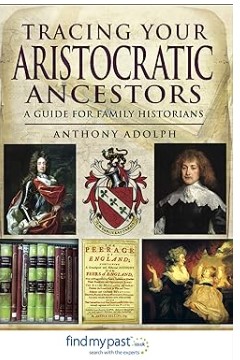
Happy researching!
Please pin a pin to Pinterest:

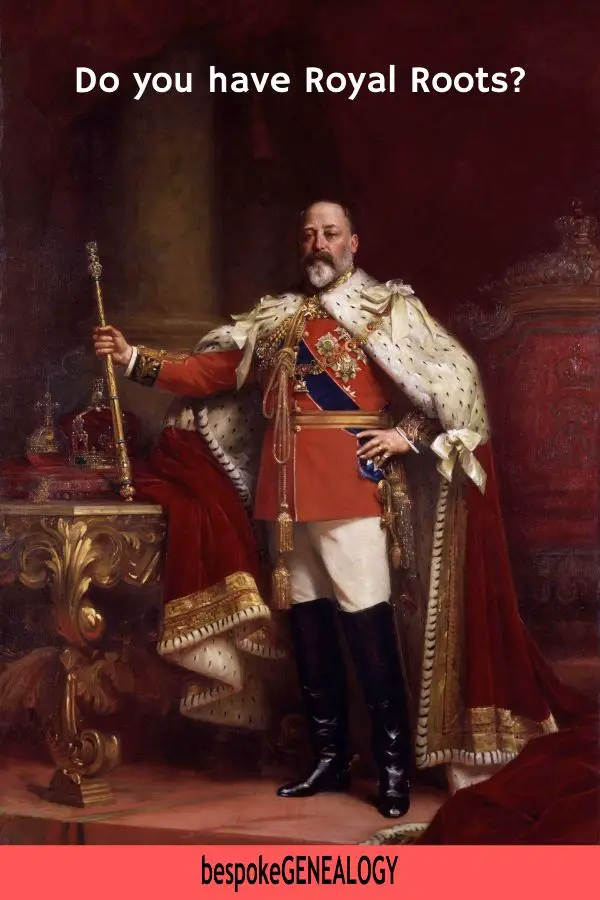
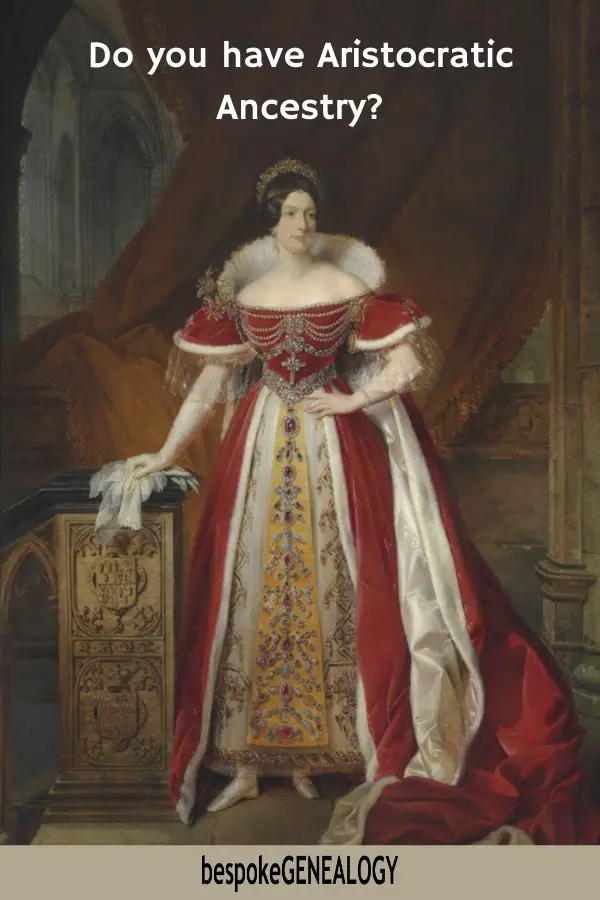
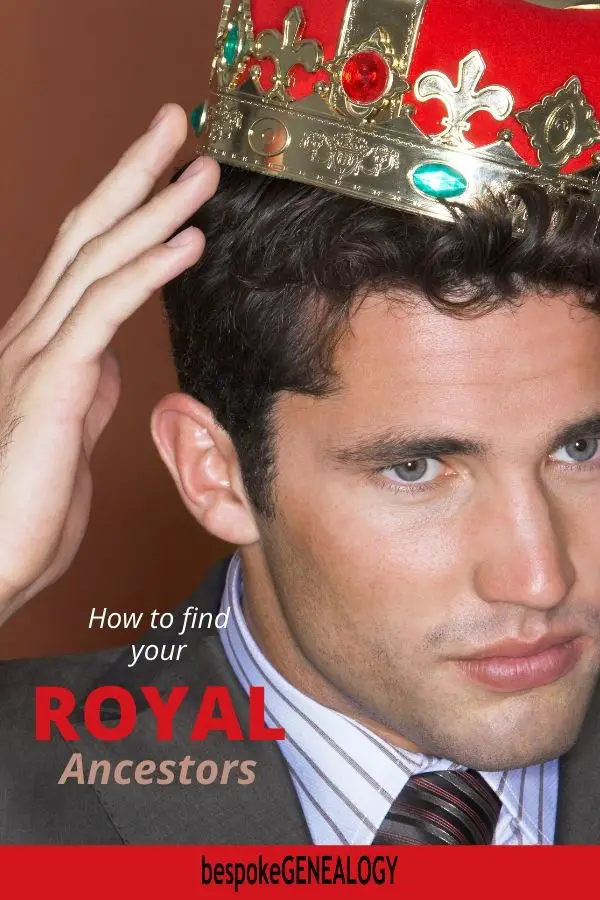
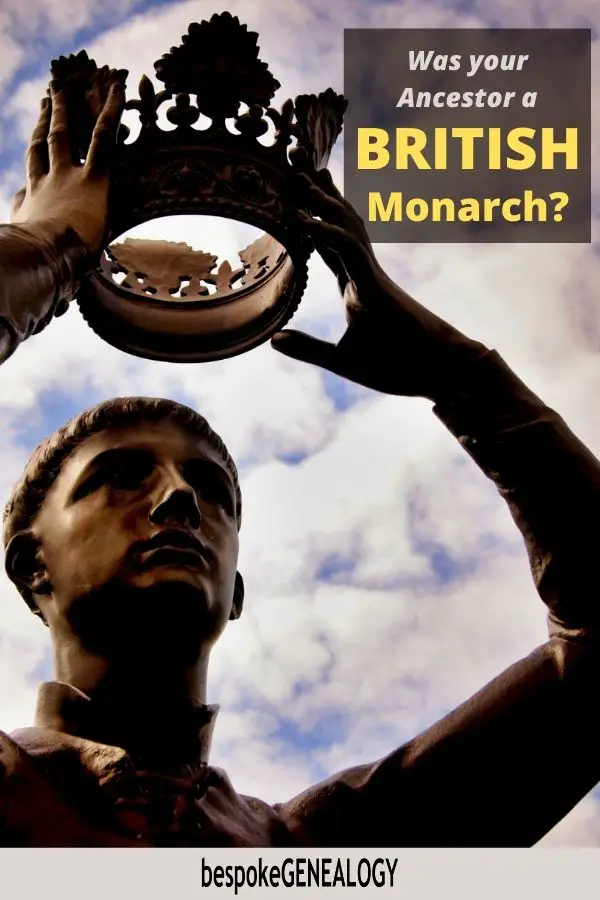
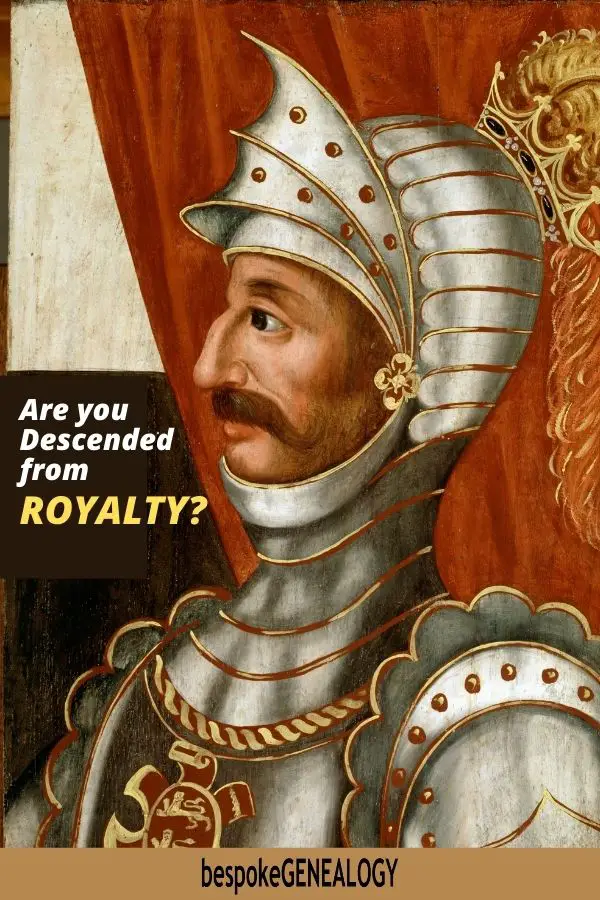
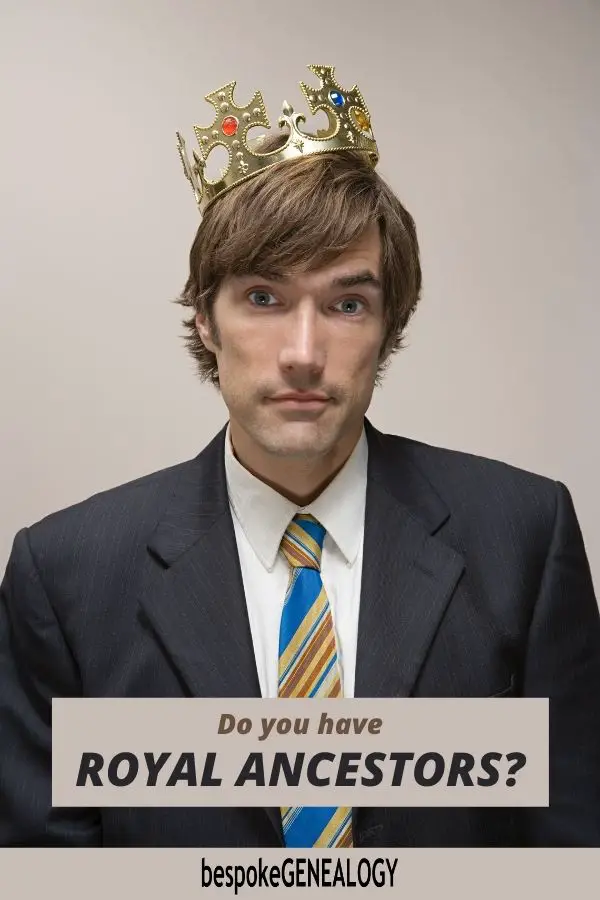
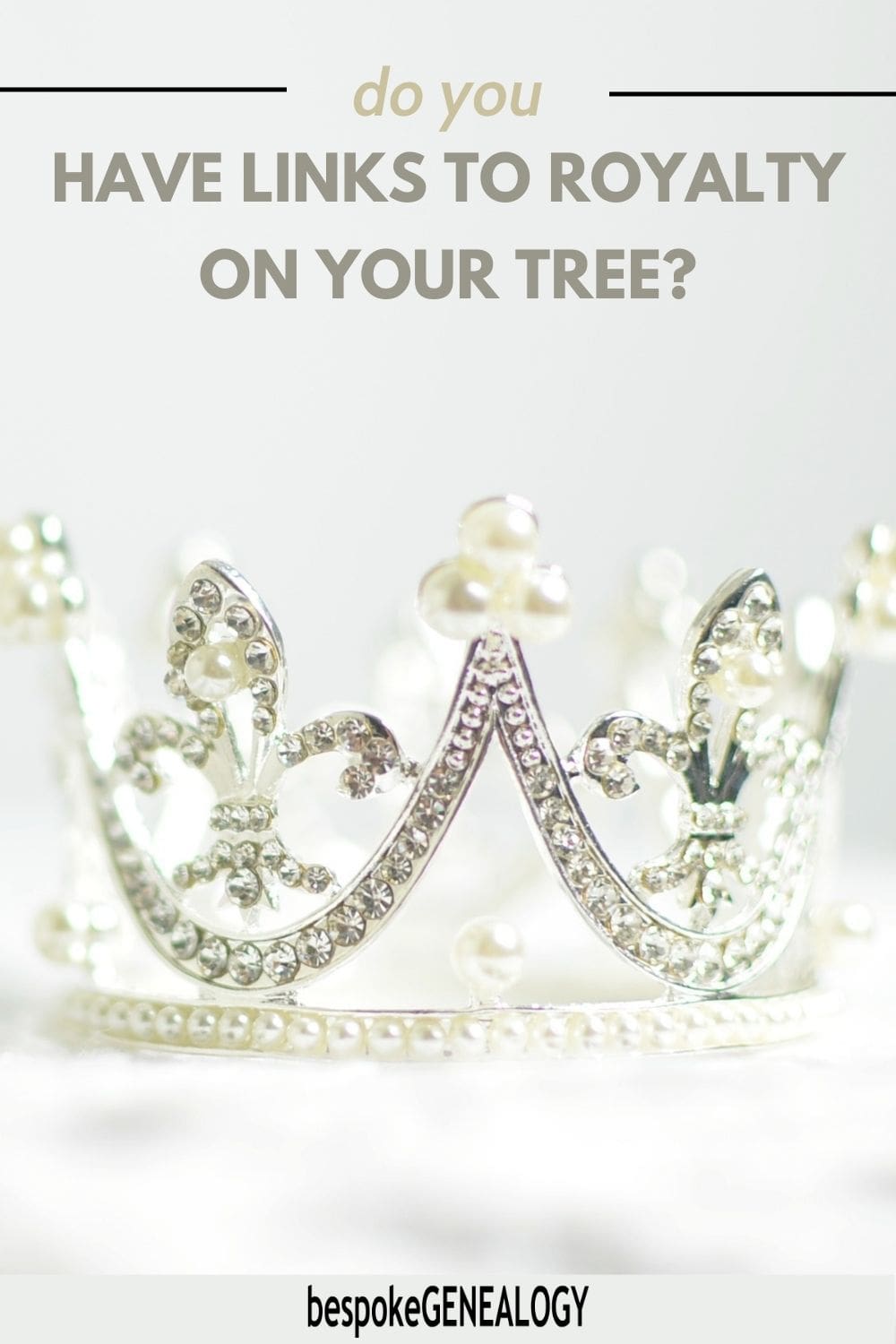
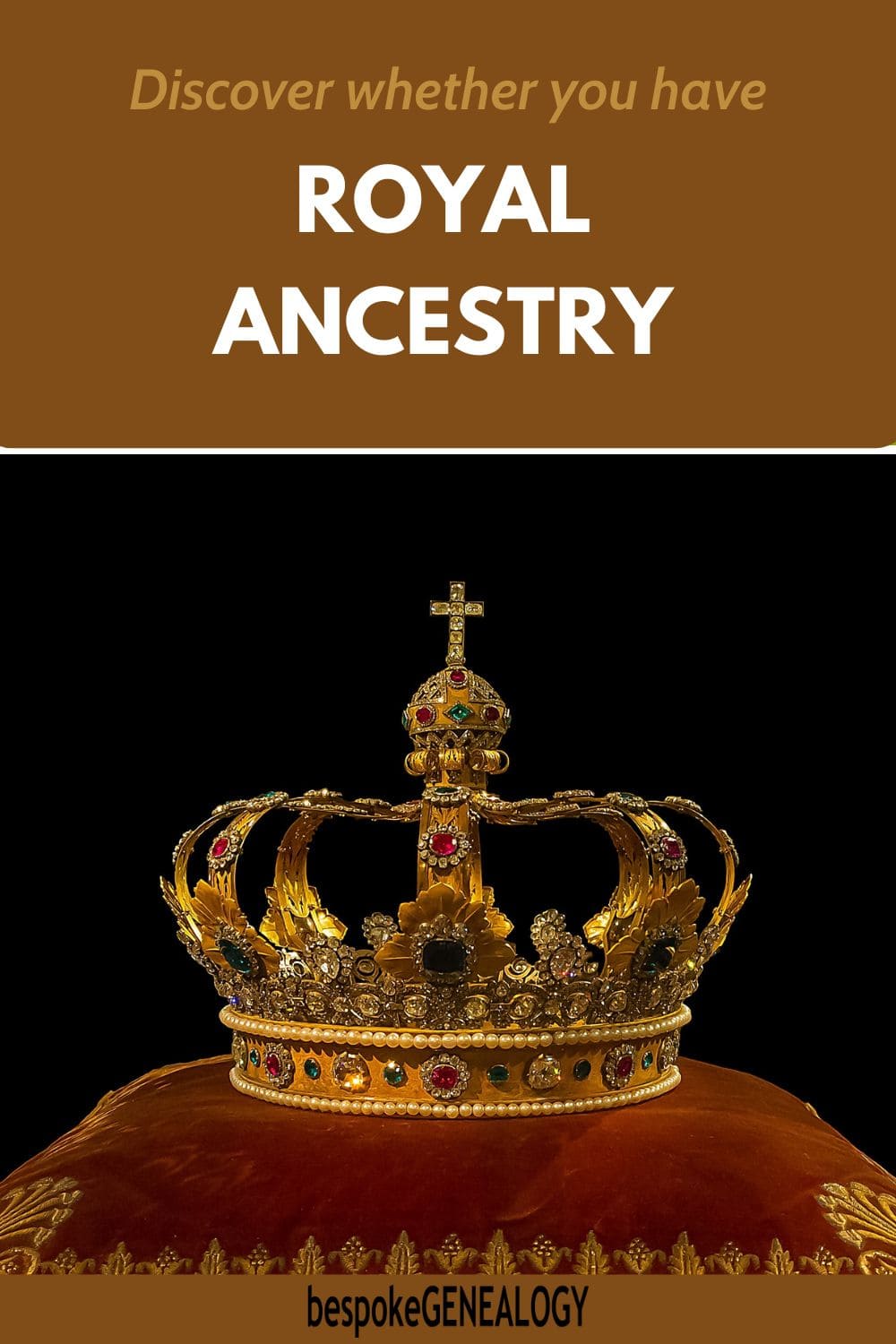

I am of Irish blood, 25 generations back on bith sides. My father has Grace O’Malley in his line. I understand her father was high up in the Irish
Thanks for sharing this Sharon
Good day Mr McGown,
I do have Royal and Aristocratic genealogical in several countries. Germany, Denmark, Bavaria, Austria, UK, Ireland, Early Roman Empire and more. I would eventually like to research most of these Ancestors but do not have any idea where to begin. I would like to start with Germany and Bavaria as that is where my mother and father are from. On my fathers side,
one of my ancestors is Comte Poppo Von Rott, l, ll and lll (Kuno Von Rott). I have this large gap in my family tree and do not know how to go about continuing and moving forward with ancestors that come after Poppo Von Rott. If you have any advice to share with me, I most certainly would appreciate it. I also live in Canada.
Thanks for sharing this Ramona. It’s great that you know that you have royal connections across Europe.
Germany is not really my area of expertise, but I know that the Family Search site has some great resources to help with German genealogy here: https://www.familysearch.org/wiki/en/Germany_Genealogy
Also see this page with links to websites for help with finding ancestors in Germany: https://www.familysearch.org/wiki/en/Top_Genealogy_Websites_for_Finding_Ancestors_in_Germany
Good luck with your research!
Alistair
Dear Alistair,
I have a possible aristocratic/royal link in my mother’s ancestry. I have been unable to find the marriage at Burke’s landed gentry, The College of Arms or Parish registers. The marriage was between Alexander Lucke and Lady Jane Guildford. (She was a cousin of the Jane Guildford who was Guildford Dudley’s Mother) in Kent (?).
Would welcome any suggestions to help solve this. IF correct it will link me to John Howard 1st Howard Duke of Norfolk..
Many Thanks in advance, and a happy 2022
Hi David,
You could try the Society of Genealogists in London: https://www.sog.org.uk/ . They have many family histories in their archive. If they can’t help you, they may be able to point you in the right direction.
Good luck!
Dear Alistair,
Many thanks for that, i’d forgotten about them.
Will try after the Bank Holiday.
Thanks again
David
You’re welcome. Happy New Year!